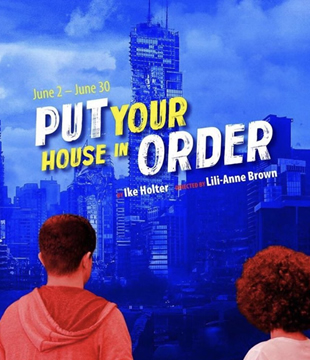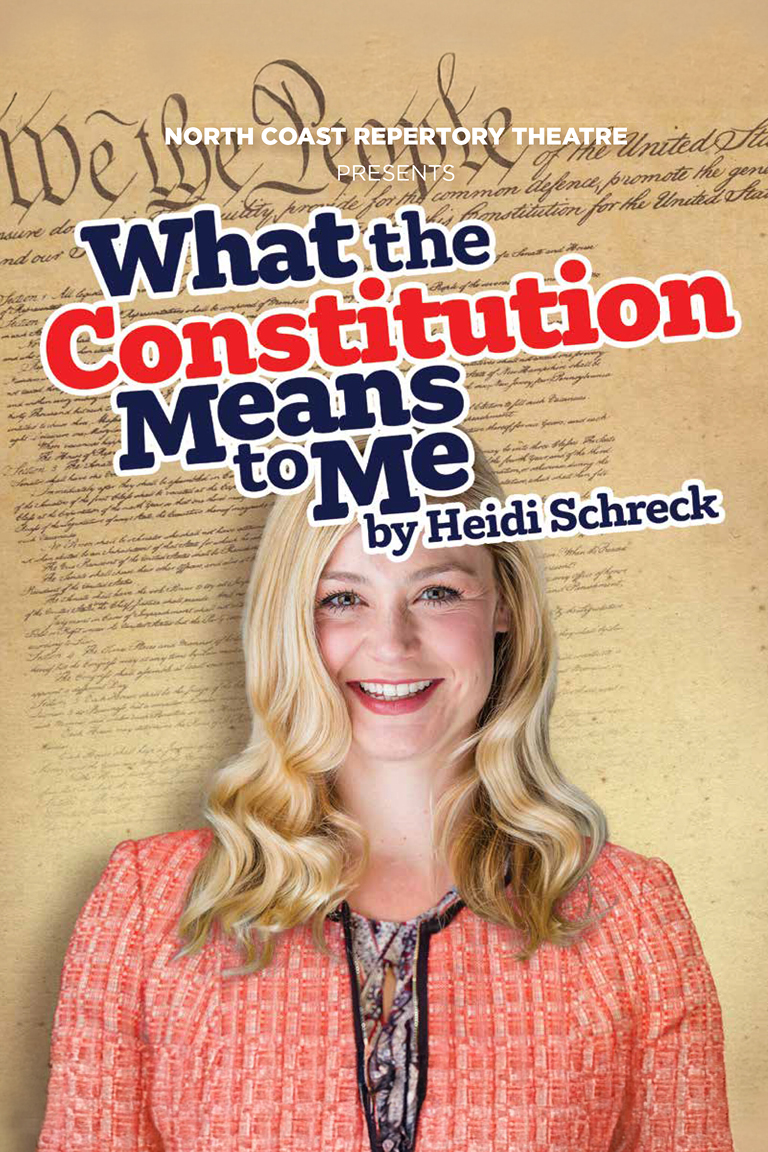One of the best things about zombie apocalypse movies (or plays) is getting to watch how human beings react to the complete breakdown of society. It’s what makes sci-fi, fantasy and horror genres powerful – their ability to use outrageously fictitious circumstances to reveal something true or insightful about the human experience.
On this level, I think Put Your House In Order fell short. The play focuses on two characters, Roland and Caroline, who are meeting for their 3rd date as news of a strange illness is just beginning to be reported online. Far too late in the play, we discover that this outbreak is actually a zombie apocalypse, but, unfortunately, what we’ve seen in the meantime hasn’t given us much reason to care about the characters. The author attempts to give us a few vulnerable moments – Caroline feels abandoned by her parents, Roland feels that he has abandoned his own young son – but the revelations felt shallow and forced, so that by the time the crisis comes to a head, I wasn’t emotionally invested enough in the characters to care much about what happened to them.
The only other character in the play, Caroline’s older neighbor, Josephine, was equally underdeveloped. She enters the story far too late with news that the situation is much worse than either Roland or Caroline had suspected and, after leaving to attempt to reach her family, returns after failing to reach them and having been infected along the way. Again, however, the plot development is clumsy and I didn’t feel any connection to her. All in all, what could have been an interesting exploration of abandonment and the relationship between parents and children ended up making me question the the playwright more than it made me question my own humanity. And that’s a shame because I did spend the rest of the evening and much of the following morning thinking about how the play could have been quite effective if some different choices had been made.
In most zombie movies, the change from human to zombie is sudden and takes place after the human being had died. In Holter’s play, however, the transformation happens more slowly as the disease progresses. We see both Josephine and Roland gradually lose their humanity as their personalities slowly give way to the zombie virus that makes them both violent and a part of the zombie hive mind. Sounds cool, right? Unfortunately, we don’t really see this happening until the last 15 minutes of the play. There’s roughly 10 minutes of plot between the time Caroline finds out that Roland is infected to the moment she puts a bullet through his head. I found myself wondering what the experience would have been like if that decision took 40 to 50 minutes rather than 10! But that wasn’t the choice the author made, and I think that missed opportunity frustrated me more than anything else.
There was an opportunity to walk the audience through the agonizing and heartbreaking process of having to watch someone you truly care about slowly disappear knowing that, at some critical moment, you were going to have to decide end their life. It’s a dark and gruesome idea, I know, but I can imagine a version of this play where the zombie metaphor was used to explore a whole host of very real end-of-life questions. As difficult as it would have been to watch, it could have been amazingly powerful to see Caroline try to decide when Roland was no longer Roland, or to see how Roland himself came to terms with the process of facing his impending death as he became less and less himself. It would have given the idea of “putting your house in order” a much richer and deeper meaning.





